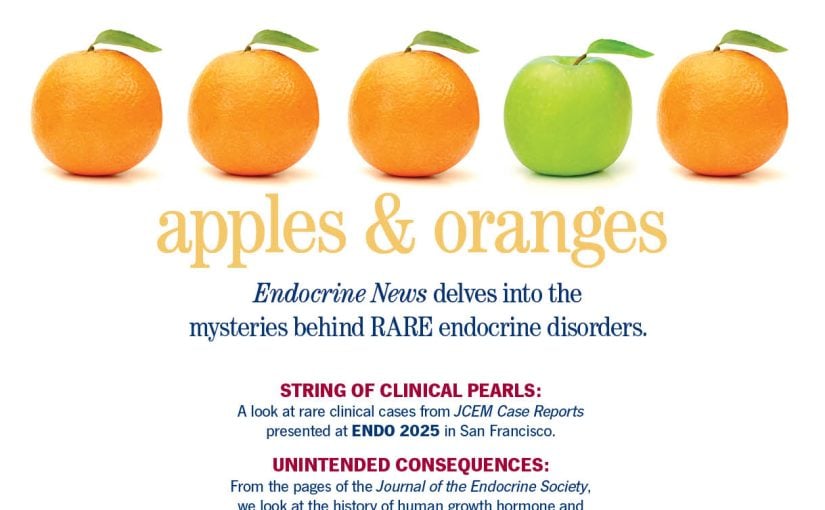An Endocrine News roundup of the week’s pharmaceutical news, breakthroughs, and general information. *
Study Data Support Efficacy of Treatment for Vasomotor Symptoms Associated with Menopause
As reported in the Sept. 6 Pharma Fridays, Bayer will present detailed results from the Phase III study OASIS 3, providing supporting efficacy data and sustained safety data over 52 weeks for the investigational compound elinzanetant, adding to the positive results of the OASIS 1 and 2 studies. These data will be presented at the 2024 annual meeting of The Menopause Society (TMS) taking place from September 10-14, in Chicago, Ill.

OASIS 3 is a Phase III efficacy and long-term safety study of elinzanetant for the treatment of vasomotor symptoms (VMS, also known as hot flashes) associated with menopause.
The data to be presented shows that elinzanetant successfully met the primary endpoint demonstrating a statistically significant reduction in the frequency of moderate to severe vasomotor symptoms from baseline to week 12 compared to placebo. Improvements in the elinzanetant arm were also seen in key secondary endpoints with a mean change from baseline in sleep disturbances and menopause related quality of life as shown by the total score over time.
There was no minimum threshold of moderate to severe VMS for inclusion in the study, and at baseline women had a mean of 6.7 VMS (square difference, SD 7.2) in the elinzanetant group and 6.8 in the placebo group (SD 6.2). After 12 weeks of treatment, the number of VMS was reduced to 1.6 (SD 2.5) in the elinzanetant group and 3.4 (SD 4.2) in the placebo group. The VMS reductions were maintained throughout the study duration. In addition, improvements were seen in measures of sleep disturbances and menopause-related quality of life with elinzanetant use over 52 weeks, based on descriptive analyses.
“To see the tolerability of elinzanetant in OASIS 3 remain consistent with earlier studies is very promising,” said Endocrine Society member James A. Simon, MD, clinical professor of obstetrics and gynecology at The George Washington University School of Medicine, Founder of IntimMedicine Specialists. “With a longer study duration and in a population with a VMS profile potentially more representative of that seen in clinical practice suggests, if approved, elinzanetant may be another option for women suffering from moderate to severe VMS.”
The safety profile of elinzanetant over 52 weeks was favorable and consistent with findings from the 26-week OASIS 1 and OASIS 2 studies, which were recently published in the Journal of the American Medical Association (JAMA).1 In OASIS 3, headache and COVID-19 were the most frequently reported treatment emergent adverse events (TEAEs) within the elinzanetant group. No incidences of endometrial hyperplasia, endometrial malignant neoplasms, and no liver toxicity signal were observed with elinzanetant.
“With a longer study duration and in a population with a VMS profile potentially more representative of that seen in clinical practice suggests, if approved, elinzanetant may be another option for women suffering from moderate to severe VMS.”
Elinzanetant is the first dual neurokinin-1 and -3 (NK-1 and 3) receptor antagonist, in late-stage clinical development for the non-hormonal treatment of moderate to severe VMS associated with menopause, administered orally once daily.
OASIS 3 (NCT05030584) is the third Phase III study in the OASIS clinical development program with positive results. Results from the first two Phase III studies OASIS 1 and 2 (NCT05042362 and NCT05099159) were recently published in The Journal of the American Medical Association (JAMA). Based on positive results from OASIS 1, 2 and 3, Bayer has submitted a New Drug Application to the U.S. FDA for elinzanetant for the treatment of moderate to severe VMS associated with menopause. Bayer is continuing to submit applications for marketing authorizations of elinzanetant to further health authorities as well.
In addition to the OASIS program, Bayer is conducting NIRVANA (NCT06112756), an exploratory Phase II randomized, parallel-group treatment, double-blind study. The primary objective is to explore the efficacy of elinzanetant on sleep disturbances associated with menopause (SDM) as determined by polysomnography (PSG). PSG is a validated method to study sleep and underlying causes of sleep disturbances. Additional objectives include exploring the efficacy of elinzanetant on SDM as determined by patient-reported outcomes and further evaluating the safety of elinzanetant.

